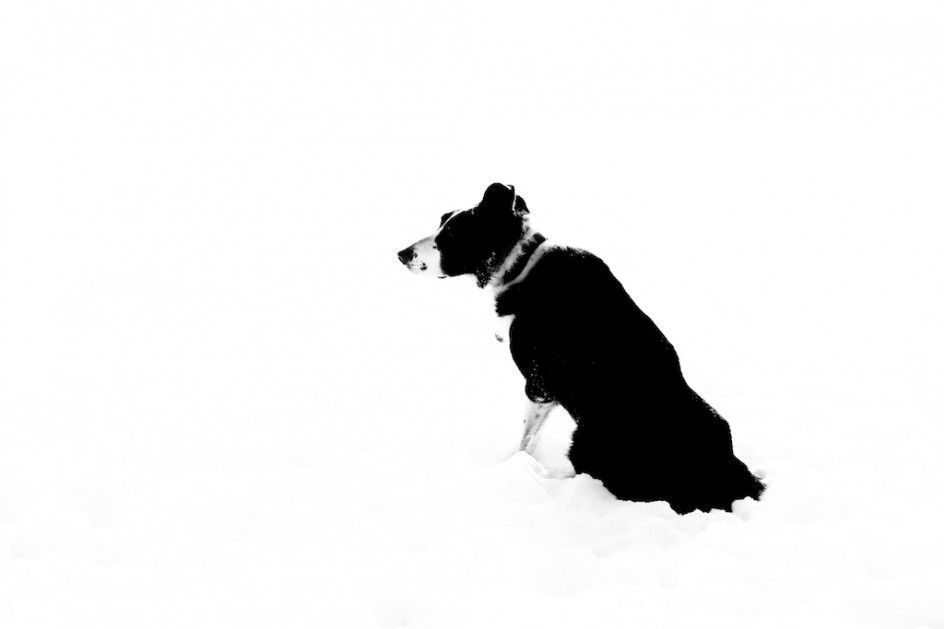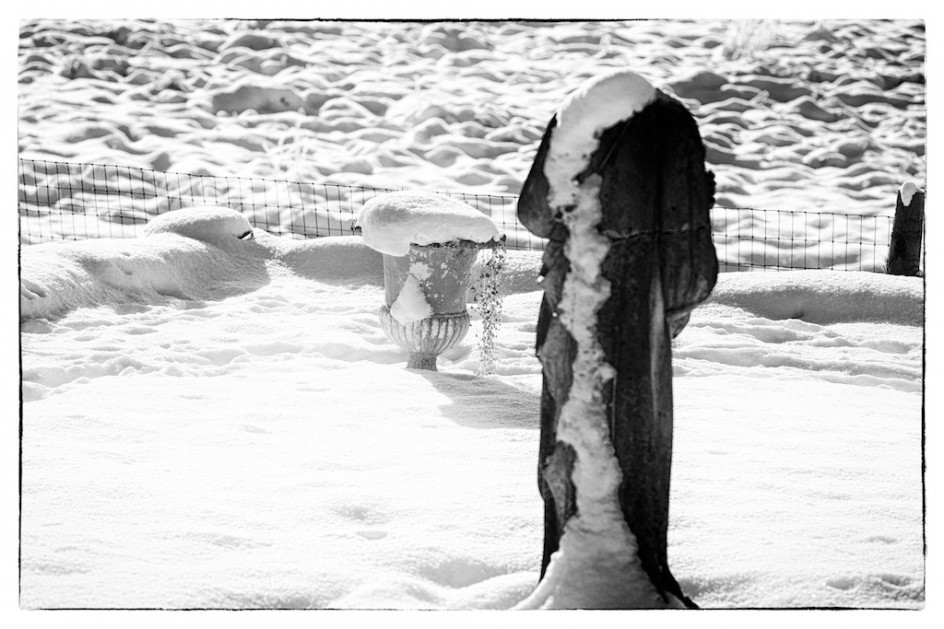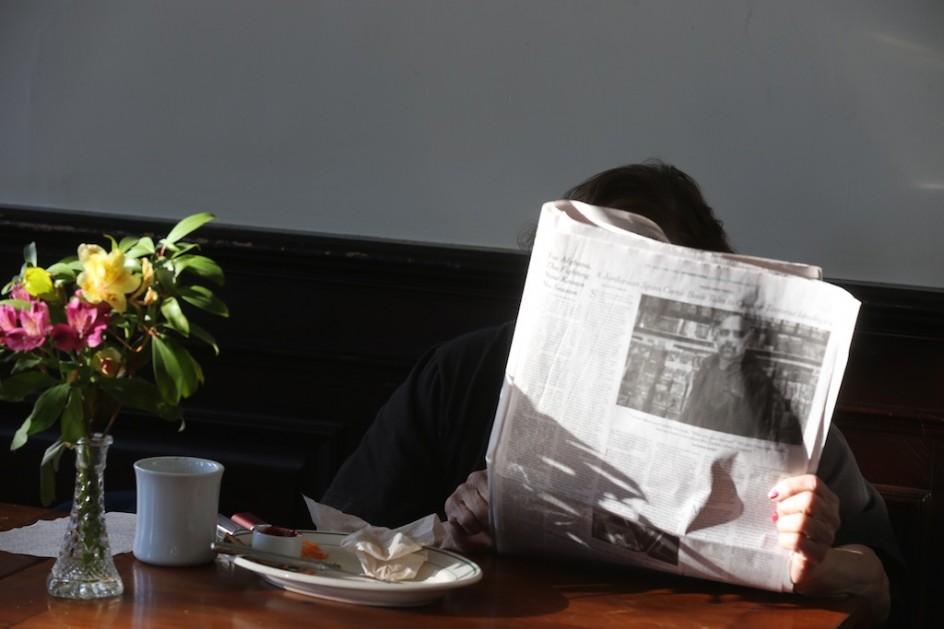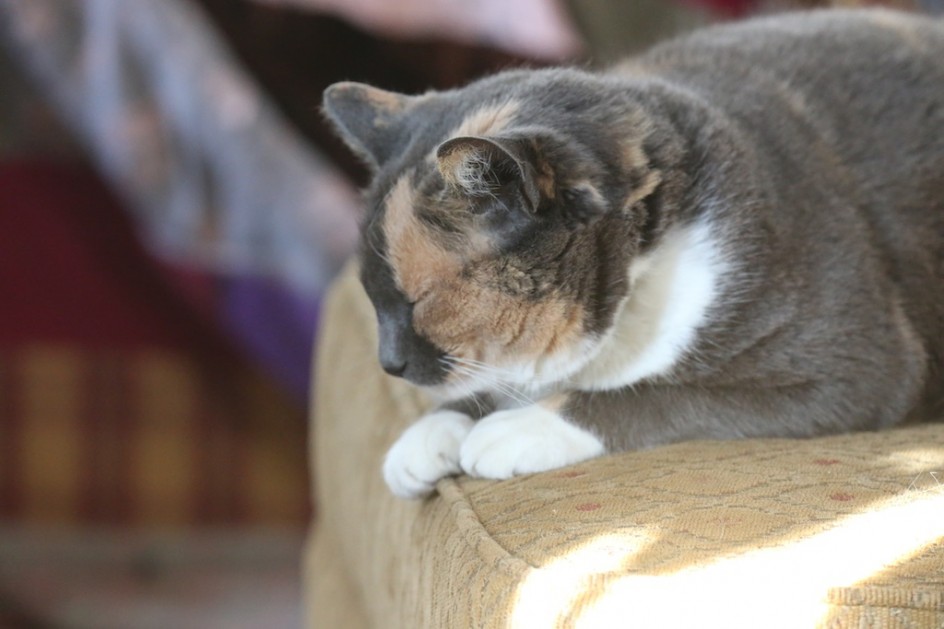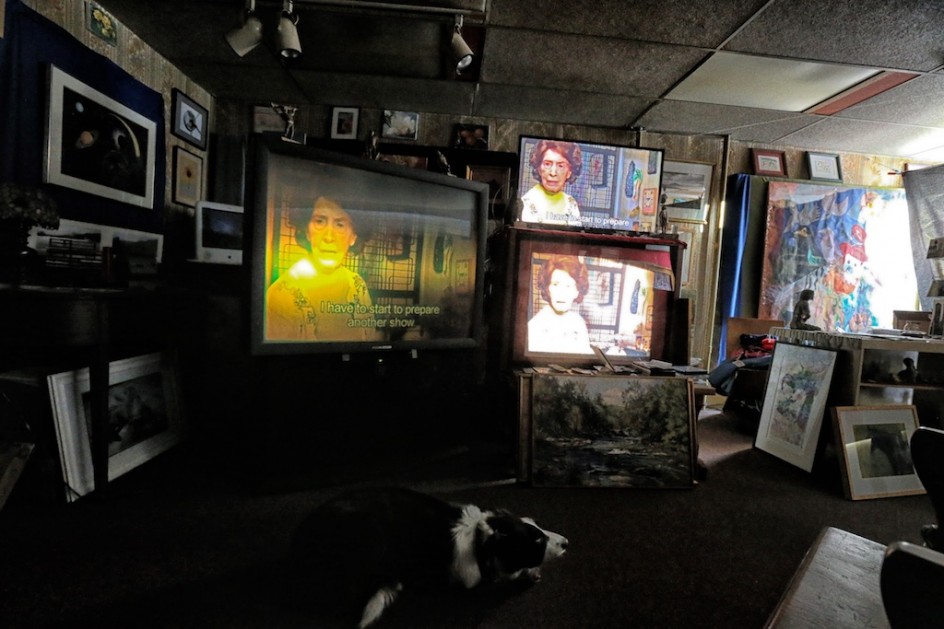
I think it was my grandmother who taught me not to tell struggle stories, or make my life into one. She fled Russia with her life, most of her family did not make it out, and most of those who stayed were killed either by Josef Stalin or by the Nazi’s a generation later. She lived a lifee of hardship and fear and challenge, from birth to death, but she never spoke of it. I never heard one struggle story or word of complaint from her.
I confess that I think of her when people mail me 40 inch jarringly detailed messages telling me they will never get over the death of their dog or cat.
I would know nothing of my grandmother seeing her brother taken and killed by a wolf in the Russian winter either, if relatives had not told me of it. Somehow, she got to America. My grandmother – I believe I owe my life to her, she showed me that there was love in the world for me – was brought to the fore for me this afternoon when my friend George Forss invited me to his art gallery (on Saturdays called the George Forss Theater Of The Arts), to watch a powerful, funny and heartbreaking film called “Yiddish Theater: A Love Story.”
George was excited about it, he was showing it on all three of his big HD TV screens, all but one salvaged from the garbage and rebuilt by him. There are 14 speakers dotting the screens all around the room, he turns them on and off with a shepherd’s crook I gave him. He calls it Surround Sound. I don’t know where George gets his movies or how he chooses the ones to show, but he has good taste, his little gallery is the Lincoln Center of my small town on weekends as far as I am concerned.
You can bring your own refreshments, but George, ever gracious, serves popcorn, potato chips, fresh water and cookies. The movie details the collapse of the last Yiddish theater in New York City, the Yiddish Public Theater, in 2002. It is really the story of legendary Yiddish actress Zypora Speisman, who devoted her life to Yiddish theater, struggled every day to keep it alive well into her eighties, and died with a broken heart two years after her beloved Folksbiene went under.
Yiddish is a dying language and a dying culture – more than three million Yiddish-speaking Jews were killed in Eastern Europe by the Germans. There simply were not enough people to support a Yiddish theater in America, but the Nazi’s did not ultimately win. The Folksiene has been reborn a few years as the National Yiddish Theater – Folksbiene and is prospering on the West Side Of Manhattan. Last year, attendance tripled. The wheel of life turns, and keeps on turning, and no one knows where it will stop or start.
My grandmother loved me as much as anyone in the world, but it was an emotional relationship, not really a spoken one. She spoke Yiddish, no English at all really. On weekends, she would drag me across Providence to go downtown and see Jerry Lewis or W.C. Fields movies, her purse stuffed with tootsie rolls and penny candy. Although she didn’t understand a word that was spoken, she laughed louder than anyone in the theater. Those movies left me loving movies and fearing dentists.
Yiddish was spoken in my grandmother’s synagogue and in her tiny immigrant Jewish neighborhood and by her husband Jake and her three daughters -my mother and my two aunts. My mother was often speaking Yiddish, on the phone and at family gatherings. I grew up hearing Yiddish every day, but I learned little of it. Like many immigrant Jews, my family wanted me to be American, not Russian or Yiddish. I was never taught Yiddish or encouraged to speak it. They all knew it was a dying culture, not a language for the future.
My grandmother conferred with me through looks, smiles, hugs, shiny pennies, hugs and raised eyebrows and lots of love and attention. She thought I was the sun and the moon, a great antidote to the way in which the rest of the world saw me. When I ran away, which was often, it was always to my grandmothers. When I was sick, I went there to heal. When I was sad, I went there to feel better. My grandmother was a healer, she knew all the ways to pull me out of whatever funk I was in. She had a stash of shiny silver dollars kept in a hiding place, just for me. If I was down enough, I always got one.
The movie today had a strong affect on me, Maria and Red came to watch it with me. It brought Minnie Cohen back to me and I miss her, one of the very few people in my early life I am able to miss. Zypora Speisman was a familiar type to me, the brilliant, autocratic, ferociously determined Jewish women who survived Hitler and Stalin and wanted desperately to keep the Yiddish Theater alive in New York, where it had thrived before World War II. She said that because Stalin and Hitler couldn’t kill her, she was afraid of no one and nothing. Anyone who was born and raised in a matriarchal culture will recognize and love Zypora Speisman. In many cultures, women held the world together. They still do.
It is perhaps my grandmother – like Zypora Speisman – who left me so much admiration for strong women. Too many men attack, even kill one another every day, in Washington and all over the world, but my grandmother, like Speisman and so many others, lived for something else, something more powerful even than war or murdering tyrants.
I have never quite figured out my relationship to Judaism or the Jews, that has never been easy for me. I am not observant, I do not identify with Israel. I converted to Quakerism when I was 14, and while I no longer attend Quaker Meeting, I feel closer to Quaker values than I ever felt to Jewish ones. I guess the exception to my distance from my born religion was my grandmother, a devout Jew whose faith was the foundation of her life, I often went to her third-floor walk-up to help her prepare the Sabbath feast, which she slaved over every Friday of her life.
My grandmother warned me repeatedly not to marry a gentile, they did not, she said, take good care of their husbands or care about cooking or cleaning. There is some truth to this, I see, but two years ago, I took Maria to my grandmother’s grave outside of Providence and I introduced Maria to her. You would like her, I said, it is true she is not much interested in cooking or cleaning, but she loves me very much and takes wonderful care of me. She is an artist and a good-hearted person, she has never harmed a soul in the world, you two have great big hearts, you would know and love one another.
My grandmother was an artist in her own right, managing her life through terror and loss and poverty in the most creative ways. She did more with pennies and careful shopping than I could ever do with dollars.
Speisman’s universe ended in a way when she died and so did one of the most vibrant and mystical cultures in history. So did my grandmother’s world. There is little if any trace of it, her grandson has certainly done little or nothing to keep the memory alive. I am sad to say that is not likely to change, that world was never my world really, and my family did a good job of pushing me in a different direction. I am more American than anything now, with my Ipad and blog and life on a farm, there is nothing but memory for me in the Yiddish world of a century ago, or of a thousand years before that.
I don’t know that I could have survived a fraction of what my grandmother – or Speisman – endured and lost, but Minnie taught me that hatred and anger and revenge are not what really drives the world. Love survives even against the greatest odds. A big heart is indestructible, it is the most powerful thing in the world.

